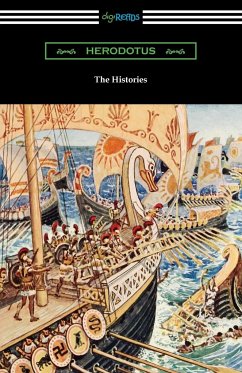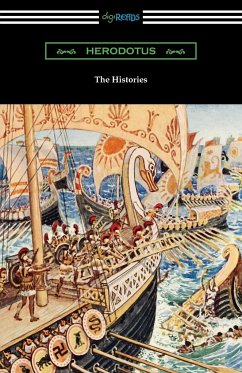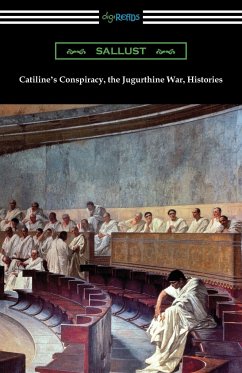
The Histories
Versandkostenfrei!
Versandfertig in 1-2 Wochen
21,99 €
inkl. MwSt.

PAYBACK Punkte
11 °P sammeln!
Widely referred to as the "Father of History", Greek Historian Herodotus lived during the 5th century BC and "The Histories" is generally accepted as the first work of historical literature in Western Civilization. Departing from the ancient Homeric tradition of treating historical subjects as epically romantic figures, Herodotus instead approached his subjects with a systematic method of investigation. "The Histories" of Herodotus describe the important wars of the fifth century BC. This work conveys the careful research and deliberate documentation of martial battles between the Greek city-s...
Widely referred to as the "Father of History", Greek Historian Herodotus lived during the 5th century BC and "The Histories" is generally accepted as the first work of historical literature in Western Civilization. Departing from the ancient Homeric tradition of treating historical subjects as epically romantic figures, Herodotus instead approached his subjects with a systematic method of investigation. "The Histories" of Herodotus describe the important wars of the fifth century BC. This work conveys the careful research and deliberate documentation of martial battles between the Greek city-states and the Persian Empire. The reasons for his efforts, as explained by Herodotus, were to preserve the memory and glory of human achievements and deeds, as well as to record why the Greco-Persian Wars took place. Organized in nine books, which are named after the Muses, he unfolds the various battles while making a comparison of the widely differing governments of the antagonists. In undertaking his "Histories," Herodotus unfolds a holistic view of the classical world with considerable narrative skill and charisma. This edition is printed on premium acid-free paper.








![Clarendon and Whitlock Compar'd [microform]. To Which is Occasionally Added, A Comparison Between the History of the Rebellion and Other Histories of Cover Clarendon and Whitlock Compar'd [microform]. To Which is Occasionally Added, A Comparison Between the History of the Rebellion and Other Histories of](https://bilder.buecher.de/produkte/65/65601/65601786n.jpg)



